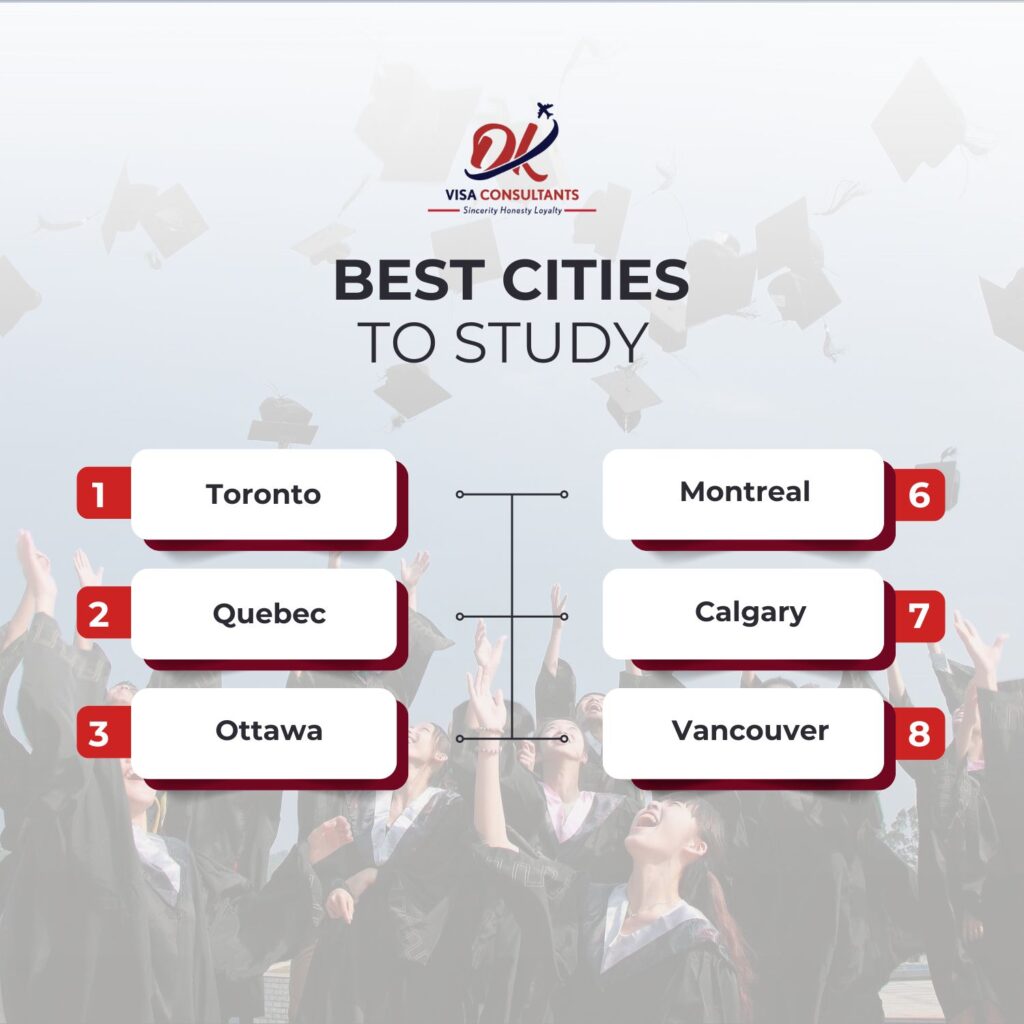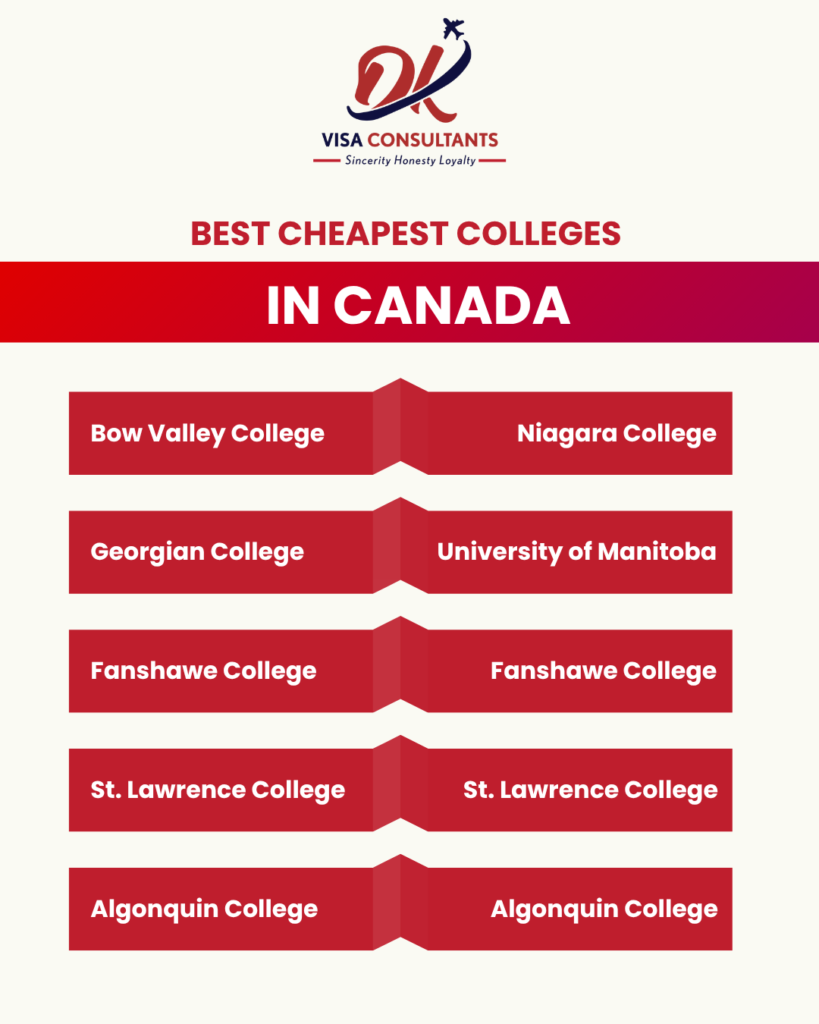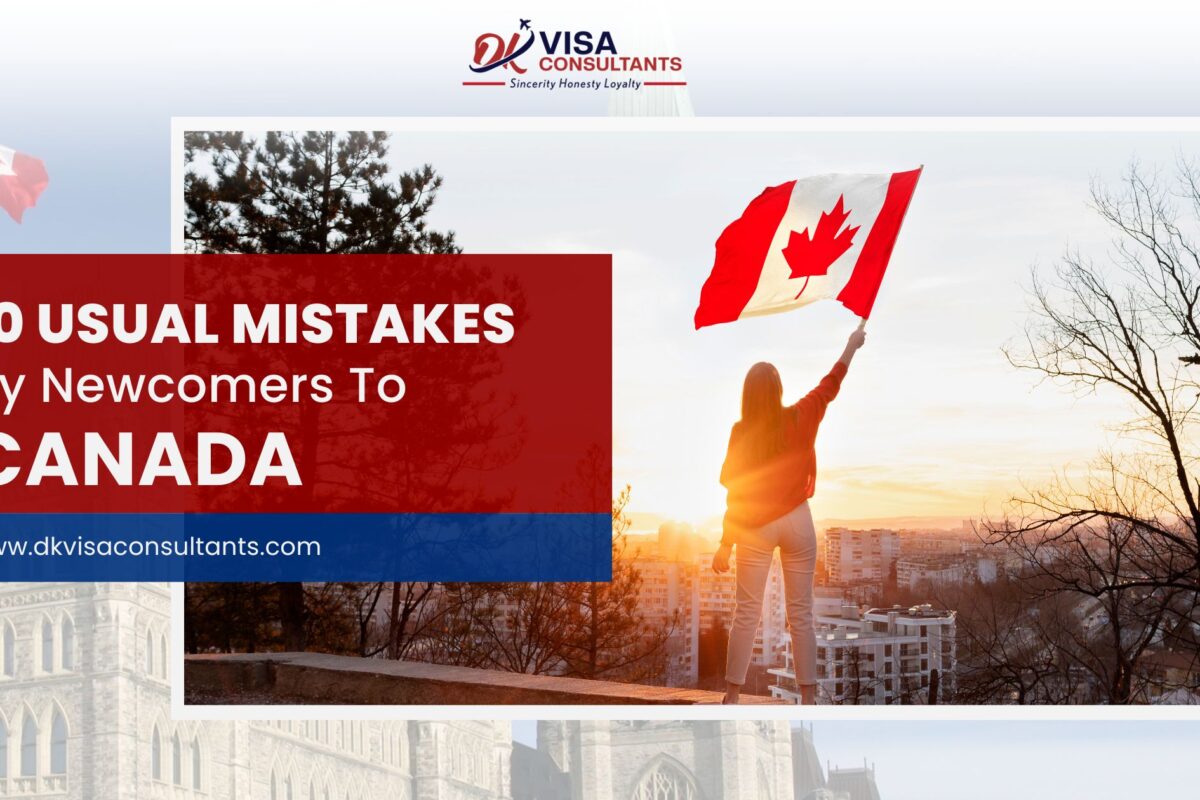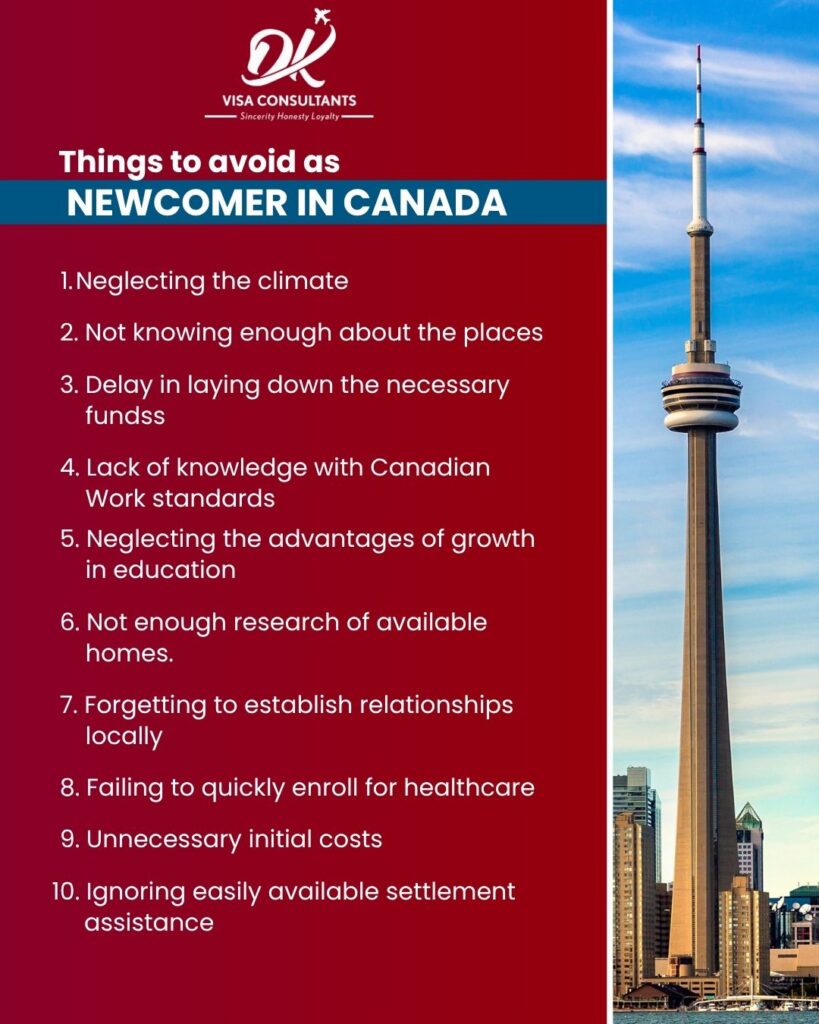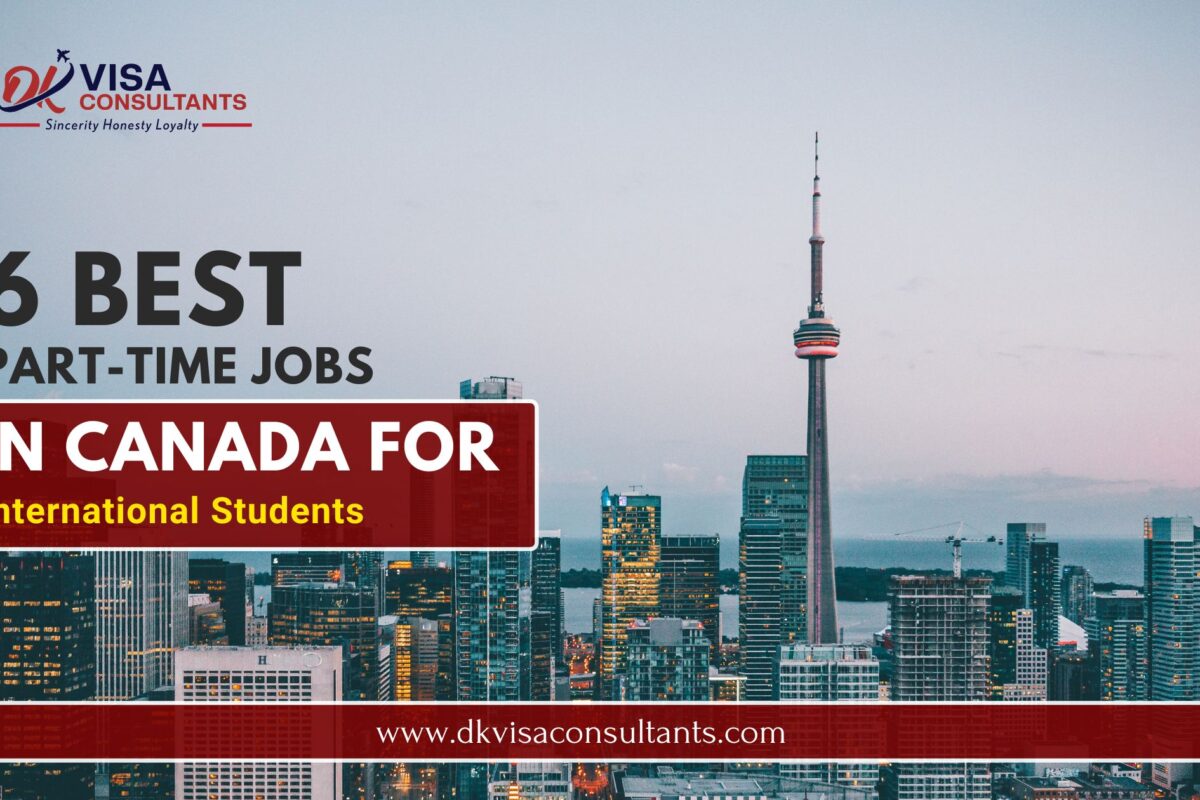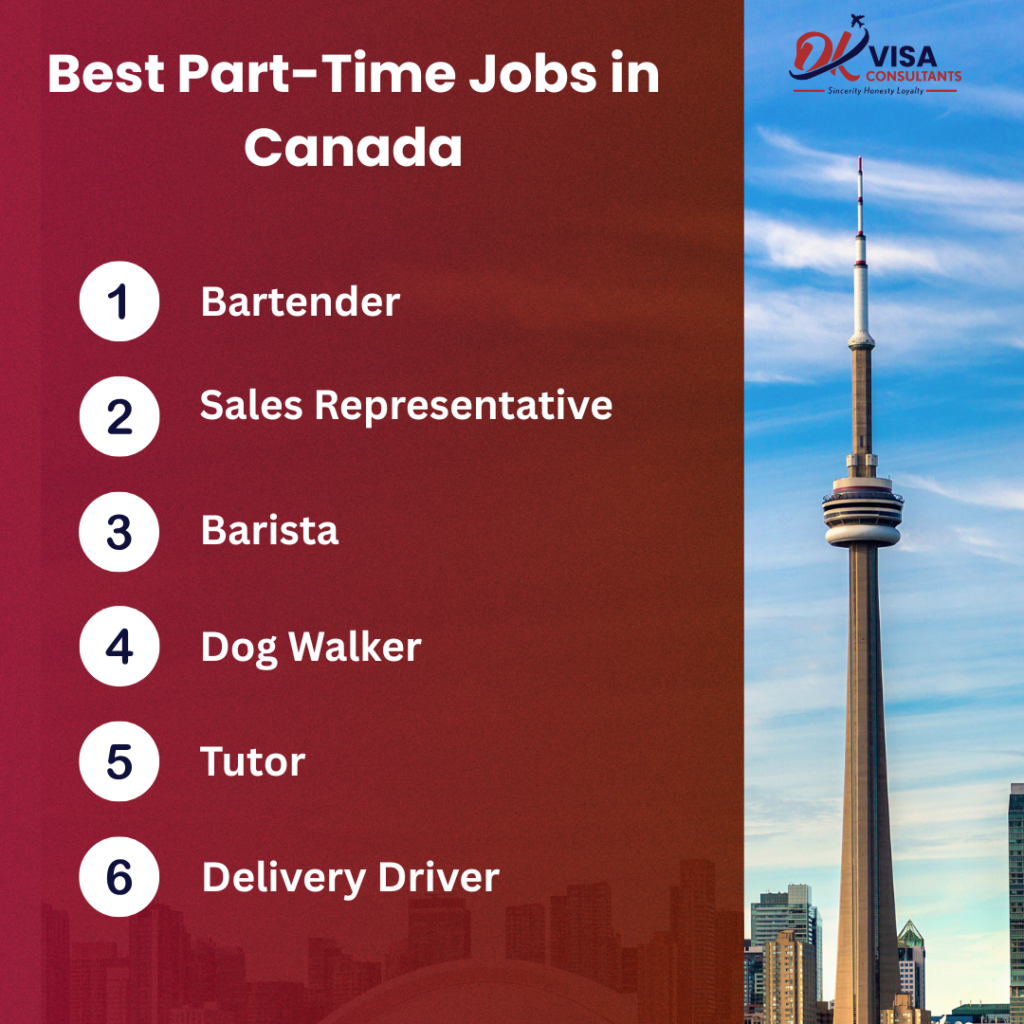Applying for a Canadian student visa is one of the most important steps for international students planning to pursue higher education in Canada. Every year, thousands of applications are submitted, but a significant number face refusal due to avoidable mistakes or incomplete documentation. For aspirants, understanding why student visas get rejected is the first step toward creating a strong and convincing application.
At DK Visa Consultant, the aim is to provide clarity on the most common reasons behind Canada student visa refusals and practical solutions to help applicants secure approvals.
Common Reasons for Canadian Student Visa Rejections
Here are the reasons for the visa rejection:
1. Insufficient Proof of Financial Capacity
One of the foremost reasons for rejection is the failure to prove adequate financial resources. Immigration officers must be convinced that tuition fees, accommodation, living expenses, travel costs, and return expenses can be covered.
- Bank statements with unexplained deposits raise doubts about authenticity.
- Incomplete proof of funds or weak sponsorship documentation creates uncertainty.
- Applicants must also show funds for dependents if included in the application.
To address this, applicants should provide detailed bank records, sponsor letters, audited statements, or fixed deposits with explanations for any large transactions. Demonstrating strong financial stability assures authorities that study plans are realistic.
2. Missing or Invalid Letter of Acceptance (LOA) and Attestation Letter
A valid Letter of Acceptance (LOA) from a designated learning institution (DLI) is mandatory for visa approval. Recently, Canada has also introduced the Provincial Attestation Letter (PAL/TAL) requirement in certain provinces due to rising international student applications.
- Submitting an LOA from an unrecognised institution leads to instant refusal.
- Missing a required PAL/TAL where mandated results in rejection.
Applicants must double-check institutional recognition and confirm whether the province requires an attestation letter before submission.
3. Errors, Inaccuracies, or Misrepresentation in Documents
Even minor mistakes in documentation can result in refusal. Common errors include:
- Incorrect personal details (spelling, birthdates, or addresses).
- Inconsistent academic or employment history across forms.
- Forged or altered certificates and transcripts.
Beyond rejection, misrepresentation carries serious consequences, such as a five-year ban from reapplying. Careful proofreading, transparent information, and professional document review play a vital role in preventing such issues.
4. Weak or Unconvincing Study Purpose
Visa officers assess whether the chosen study program aligns with academic background, work experience, and future career aspirations. When there is no logical connection, doubts arise about genuine study intent.
- A student with an engineering degree applying for a hospitality diploma without clear reasoning may face refusal.
- A poorly drafted Statement of Purpose (SOP) lacking clarity and ambition weakens the application.
A strong SOP should explain academic goals, the reason for selecting Canada, the value of the chosen program, and career objectives after graduation.
5. Lack of Proof of Ties to Home Country
Another common reason for rejection is the perception that the applicant may not return after studies. Canadian authorities want to ensure that the study permit is not being used as a pathway for permanent settlement without clear intention.
- Absence of family, property, or job connections in the home country creates concerns.
- No clear post-study plan further adds to doubts.
Applicants should demonstrate strong home ties, such as family relationships, business ownership, property documents, or career opportunities awaiting after graduation.
6. Low Academic Performance or Language Test Issues
Academic history is another factor considered during the visa process. If grades or language proficiency scores are below institutional or program requirements, the officer may conclude that the applicant is unlikely to succeed academically.
- Low IELTS, TOEFL, or PTE scores weaken credibility.
- Gaps in education without valid justification invite suspicion.
Applicants should either upgrade language scores, bridge academic gaps with valid explanations, or select programs that match prior qualifications.
7. Lack of Travel History or Previous Visa Refusals
While not the most critical factor, a lack of international travel history sometimes affects visa outcomes. Applicants with prior refusals from other countries may also face additional scrutiny. To counter this, submitting a strong study plan, consistent financial documents, and additional proof of intent is essential.
Strategies to Strengthen a Canadian Student Visa Application
- Build a Consistent Story: Ensure that academic records, financial documents, and SOP tell a clear and convincing story.
- Prepare a Strong SOP: Highlight academic achievements, career goals, and reasons for choosing Canada in a structured, professional way.
- Demonstrate Financial Stability: Provide proof of funds for at least one year, explain sudden deposits, and add sponsor documents if required.
- Show Ties to Home Country: Attach property documents, family details, or employment offers to prove genuine return intent.
- Choose Programs Wisely: Select courses that logically fit previous education or professional experience.
At DK Visa Consultant, every case is reviewed carefully to ensure these aspects are covered before submission.
Conclusion
Canadian student visa refusals are often the result of avoidable mistakes such as weak financial proof, incomplete documents, or poorly drafted SOPs. If study in Canada is a dream, with the right preparation, guidance, and transparent presentation, these obstacles can be overcome. DK Visa Consultant provides expert support in navigating the complex process, ensuring that applications meet Canadian immigration standards and have the highest chance of success.
FAQ
Q1: What is the success rate of Canadian student visa applications?
Ans: Approval rates vary depending on country of origin, documentation quality, and program choice. On average, around 60–70% of global applications are approved, but rates differ across regions.
Q2: What should be done immediately after a refusal?
Ans: Applicants should carefully review the refusal letter, identify the reasons, and prepare a stronger reapplication addressing those concerns.
Q3: Can poor IELTS scores cause rejection?
Ans: Yes. If the score is below the program’s minimum requirement, the visa officer may consider the applicant unfit for the program.
Q4: How much proof of funds is required?
Ans: Applicants must demonstrate funds for tuition (for at least one year) plus CAD $20,635 for living expenses (as of 2024), excluding travel costs.
Q5: Does hiring a consultant guarantee approval?
Ans: No consultant can guarantee a visa approval, but professional assistance reduces errors, strengthens applications, and improves the overall success rate.



